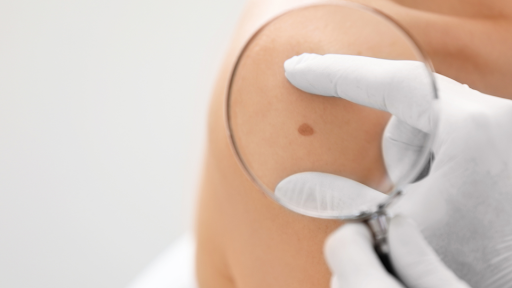Dermatology issues can arise unexpectedly, leading many individuals to seek immediate care. While urgent care facilities are designed to handle a variety of medical concerns, patients often wonder whether dermatological problems can be effectively treated in these settings. This article explores the capabilities of urgent care centers regarding dermatology, the types of conditions they can address, and when to seek specialized care.
 Understanding Urgent Care Facilities
Understanding Urgent Care Facilities
Urgent care centers offer a convenient alternative to traditional emergency rooms, providing care for non-life-threatening conditions that require immediate attention. These facilities are typically open extended hours, including evenings and weekends, making them accessible for patients who cannot wait for a scheduled appointment with their primary care physician. This accessibility is particularly beneficial for families with children, busy professionals, or anyone who may find it challenging to take time off work for a doctor's visit. The ability to walk into an urgent care center without an appointment can significantly reduce the stress associated with seeking medical attention.
Most urgent care centers are staffed by a mix of physicians, physician assistants, and nurse practitioners who are trained to diagnose and treat a variety of medical issues. This includes minor injuries, illnesses, and certain dermatological conditions. However, the scope of care can vary significantly from one facility to another. Many urgent care centers are equipped with diagnostic tools such as X-ray machines and laboratory services, allowing for a more comprehensive evaluation of a patient's condition. This capability enables them to manage a wide range of ailments, from fractures to respiratory infections, all in a timely manner.
Common Dermatological Issues Treated at Urgent Care
Urgent care centers can effectively manage several dermatological issues. Some of the most common conditions treated include:
Rashes: Allergic reactions, contact dermatitis, and other types of rashes can often be diagnosed and treated at urgent care.
Insect Bites and Stings: Reactions to insect bites can cause swelling and discomfort, which urgent care providers can address.
Skin Infections: Conditions like cellulitis or abscesses may require immediate care, and urgent care facilities can provide the necessary treatment.
While these conditions are generally manageable, more complex dermatological issues may require specialized care. For example, patients experiencing severe allergic reactions may need to be monitored for anaphylaxis, which is beyond the typical urgent care scope. Additionally, urgent care centers often provide education on skin care and prevention strategies, helping patients understand how to manage their conditions effectively and avoid future incidents.
Limitations of Urgent Care for Dermatology
Despite their capabilities, urgent care centers have limitations when it comes to dermatological care. For instance, they may not have the specialized equipment or expertise needed to diagnose and treat more serious skin conditions such as:
Skin Cancer: Urgent care providers are not typically equipped to perform biopsies or comprehensive skin examinations for cancer.
Chronic Skin Conditions: Conditions like psoriasis or eczema may require ongoing management and specialized treatment plans.
Cosmetic Dermatology: Procedures such as laser treatments, chemical peels, or cosmetic injections are beyond the scope of urgent care.
Moreover, urgent care facilities may not have access to a patient's complete medical history, which can be crucial for diagnosing skin conditions accurately. This lack of continuity can sometimes lead to misdiagnoses or incomplete treatment plans. Patients with persistent or recurrent dermatological issues are often advised to seek care from a dermatologist who can provide a more thorough evaluation and long-term management strategies tailored to their specific needs. Understanding these limitations can help patients make informed decisions about where to seek care for their skin concerns.
When to Visit Urgent Care for Dermatology
Knowing when to visit urgent care for dermatological issues can save time and ensure appropriate care. Here are some scenarios where urgent care may be the right choice:
Acute Symptoms
If a patient experiences sudden and severe symptoms, such as intense itching, swelling, or pain, urgent care can provide prompt evaluation and treatment. For example, a severe allergic reaction resulting in hives or swelling may require immediate attention. In addition to allergic reactions, conditions like eczema flare-ups can also necessitate urgent care, especially when they lead to open sores or significant discomfort. The medical staff can offer immediate relief through topical treatments or oral medications, ensuring that the patient can return to their daily activities without prolonged suffering.
Infections
Skin infections can escalate quickly if left untreated. Urgent care can diagnose and provide antibiotics for conditions like cellulitis or infected insect bites, preventing complications. Moreover, conditions such as impetigo, a highly contagious bacterial skin infection, can spread rapidly, particularly among children. Urgent care facilities are equipped to handle these cases efficiently, often providing necessary wound care and education on how to prevent further spread. This proactive approach is crucial in managing infections before they lead to more serious health concerns.
Minor Dermatological Procedures
Urgent care facilities are often equipped to perform minor procedures, such as draining abscesses or removing warts. These services can be beneficial for patients seeking quick relief from bothersome skin issues. Additionally, many urgent care centers offer cryotherapy for the treatment of skin tags and precancerous lesions, which can be a convenient option for patients who may not have access to a dermatologist immediately. The ability to address these minor but impactful dermatological concerns in a timely manner can significantly enhance a patient's quality of life and prevent the development of more serious skin conditions.
Alternatives to Urgent Care for Dermatology
While urgent care is a viable option for certain dermatological conditions, there are alternatives that may be more appropriate for other issues. Patients should consider the following:
Primary Care Physicians
For ongoing skin concerns or chronic conditions, a primary care physician may be the best first step. They can provide referrals to dermatologists and help manage long-term treatment plans. Additionally, primary care physicians are often familiar with a patient’s overall health history, which can be crucial in diagnosing skin issues that may be related to other health conditions. They can also offer guidance on preventive measures and lifestyle changes that can improve skin health, such as dietary adjustments or skincare routines tailored to individual needs.
Dermatology Specialists
For more complex skin issues, such as suspected skin cancer or severe acne, a visit to a dermatologist is recommended. Dermatologists have specialized training and access to advanced diagnostic tools and treatments. They can perform skin biopsies, prescribe potent medications, and provide targeted therapies like phototherapy or laser treatments. Moreover, dermatologists stay updated on the latest research and innovations in skin care, ensuring that patients receive the most effective and cutting-edge treatments available for their specific conditions.
Telehealth Services
In recent years, telehealth has emerged as a convenient option for patients seeking dermatological advice. Services like Doctronic offer virtual consultations with qualified healthcare providers who can assess skin issues and recommend appropriate treatment. This option is particularly beneficial for individuals who may not have immediate access to a dermatologist or prefer the convenience of receiving care from home. Telehealth can also facilitate follow-up appointments, allowing patients to maintain ongoing care without the need for in-person visits. Furthermore, many telehealth platforms provide secure messaging features, enabling patients to ask questions and receive guidance between appointments, which can help in managing their skin conditions more effectively.
Benefits of Using Telehealth for Dermatology
Telehealth offers numerous advantages for patients dealing with dermatological concerns. Here are some benefits of utilizing services like Doctronic:
 Convenience and Accessibility
Convenience and Accessibility
Patients can connect with healthcare providers from the comfort of their homes, eliminating the need for travel and long wait times. This is especially beneficial for those with mobility issues or those living in remote areas. Additionally, telehealth allows for flexible scheduling, enabling patients to book appointments at times that are most convenient for them, including evenings and weekends. This flexibility can significantly reduce the stress associated with managing health appointments, particularly for busy individuals or families.
Comprehensive Care
AI-powered platforms like Doctronic provide personalized care by drawing on the latest medical research. This ensures that patients receive accurate diagnoses and treatment recommendations based on comprehensive knowledge of dermatology. Furthermore, these platforms can analyze a patient's medical history and symptoms in real-time, allowing for tailored treatment plans that can adapt as the patient's condition evolves. The integration of advanced technology not only enhances the quality of care but also empowers patients to take a more active role in their health management.
Cost-Effective Solutions
Telehealth services are often more affordable than in-person visits, making them an attractive option for patients seeking quality care without the high costs associated with traditional healthcare settings. In addition to lower consultation fees, patients can save on travel expenses and time off work, which can add up significantly over time. Many telehealth platforms also offer transparent pricing structures, so patients can easily understand their financial commitments upfront, further reducing anxiety around healthcare costs.
Enhanced Follow-Up Care
One of the standout benefits of telehealth in dermatology is the ease of follow-up care. After an initial consultation, patients can schedule quick follow-up appointments to monitor their progress or address any concerns without the hassle of returning to a clinic. This continuous monitoring can be crucial for dermatological conditions that require regular assessment, such as acne or psoriasis. Moreover, patients can send photos of their skin conditions through secure messaging systems, allowing dermatologists to evaluate changes and adjust treatments promptly, ensuring that patients receive the most effective care possible.
Increased Patient Engagement
Telehealth platforms often come equipped with educational resources and tools that encourage patients to learn more about their skin health. This can include access to articles, videos, and interactive tools that explain various skin conditions and treatments. By fostering a deeper understanding of their health, patients are more likely to adhere to treatment plans and make informed decisions about their care. Additionally, the ability to communicate directly with healthcare providers through messaging or video calls can lead to a more collaborative relationship, where patients feel empowered to ask questions and express concerns without hesitation.
Dermatology Done Right—In Clinic or Online
While urgent care facilities can effectively treat a range of dermatological issues, they are not a one-size-fits-all solution. Understanding the limitations of urgent care and recognizing when to seek specialized care is crucial for optimal health outcomes. For those who prefer a more convenient and personalized approach, telehealth services like Doctronic offer a valuable alternative, providing access to expert advice and treatment recommendations from the comfort of home.
In summary, patients experiencing acute dermatological symptoms may benefit from urgent care, while those with chronic or complex conditions should consider consulting a dermatologist or utilizing telehealth services. By making informed decisions about when and where to seek care, individuals can ensure they receive the most appropriate treatment for their skin health.
AI Dermatology, Personalized for You
When dermatological issues arise, you deserve fast, personalized, and expert care. Doctronic is here to revolutionize your healthcare experience with our AI-powered doctor, providing you with immediate, accurate medical advice and treatment recommendations. With over 10 million satisfied users, our free AI doctor visits and affordable telehealth video visits are available 24/7 across all 50 states. Embrace the future of dermatology care that's faster, smarter, and more personal. Skip the line and talk to an AI Doctor now, for free.



 Understanding Urgent Care Facilities
Understanding Urgent Care Facilities Convenience and Accessibility
Convenience and Accessibility